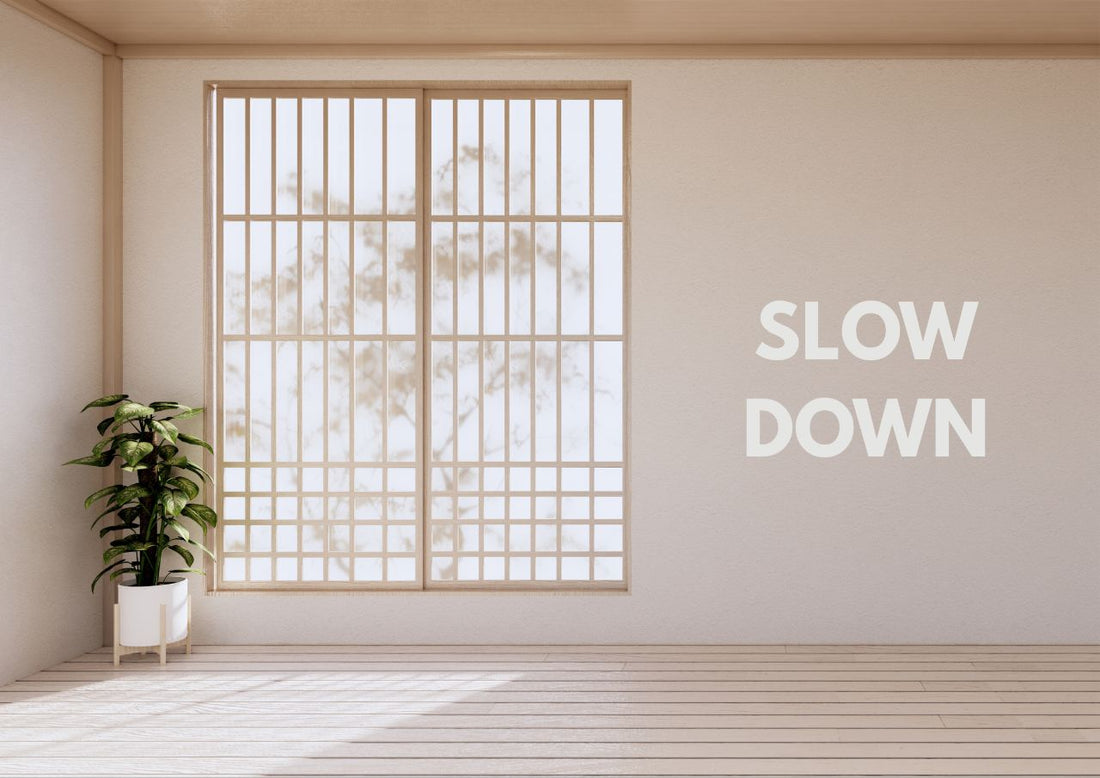The slow living movement, which emphasizes mindfulness, sustainability, and intentionality in daily life, aligns seamlessly with the principles of conscious household cleaning. Both philosophies reject rushed, impersonal routines in favor of purposeful, eco-friendly, and fulfilling practices. By examining their shared values, it becomes clear that conscious cleaning is not just a chore but an extension of the slow living mindset.
At the core of both concepts is mindfulness. Slow living encourages presence in everyday tasks, transforming mundane activities into meaningful rituals. Similarly, conscious cleaning shifts the focus from speed to sensory engagement; appreciating the scent of natural cleaners, the texture of our XL Swedish dishcloths, and the satisfaction of a decluttered space. This approach turns cleaning into a meditative practice rather than a burdensome task.
Sustainability is another key intersection. Slow living prioritizes waste reduction and avoidance of harmful chemicals, while conscious cleaning embraces biodegradable ingredients like vinegar, baking soda, and castile soap. There is greater emphasis in saying "NO" to disposable, toxin-laden products in favor of reusable, earth-friendly alternatives such as our bamboo scrubbers and loofah kitchen sponges. This reflects a shared commitment to protecting both personal health and the environment.
The principle of quality over convenience further unites these philosophies. Slow living advocates for durable, long-lasting goods, and conscious cleaning follows suit by choosing effective, non-toxic methods such as steam cleaning or handmade scrubs over quick-fix chemical sprays. This mindset ensures that cleaning practices are safe, sustainable, and enduring.
Decluttering and simplicity also play a vital role. Slow living promotes minimalism to reduce stress, and conscious cleaning thrives in uncluttered spaces. A pared-down home makes cleaning easier and more intentional, reinforcing the idea that less truly is more.
Finally, both philosophies emphasize ritual and well-being. Slow living finds joy in daily rhythms, while conscious cleaning transforms chores into calming routines akin to the Japanese practice of "osouji". "Osouji", which translates to "big cleaning," is a traditional Japanese year-end purification ritual that goes beyond physical tidying. Rooted in Shinto and Buddhist principles, it views cleaning as a form of mental and spiritual renewal—a way to clear not just dust, but negative energy and stagnant emotions. Unlike Western deep-cleaning, which often focuses on efficiency, "osouji" is performed with deliberate care: wiping surfaces in mindful strokes, organizing belongings with gratitude, and discarding unused items to make space for new beginnings. This practice aligns perfectly with slow living's emphasis on intentionality, as it transforms cleaning from a chore into a reflective, almost sacred act. Many Japanese households also perform smaller versions of "osouji" seasonally or monthly, reinforcing the idea that maintaining a clean space is an ongoing practice in mindfulness. By adopting this perspective, conscious cleaning becomes not just about hygiene, but about cultivating inner peace and harmony with one's surroundings.
By avoiding synthetic fragrances and harsh chemicals, conscious cleaning also fosters a healthier home, aligning with slow living’s focus on holistic wellness in our everyday tasks. In essence, conscious cleaning is a natural extension of the slow living movement. Both encourage deliberate, sustainable, and fulfilling ways of living in a circular economy, thus proving that even the simplest acts, like cleaning, can become meaningful rituals when approached with intention.

